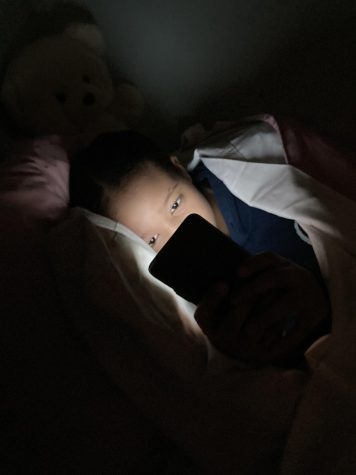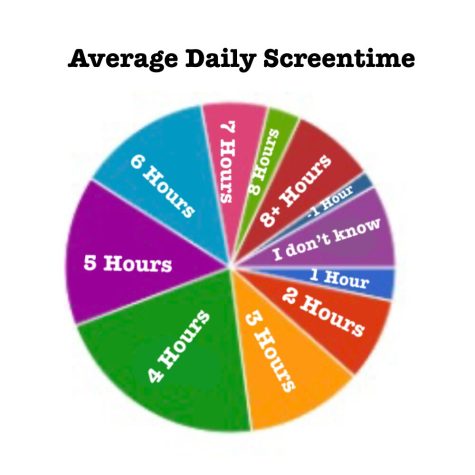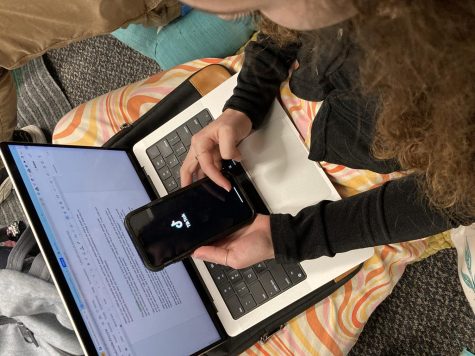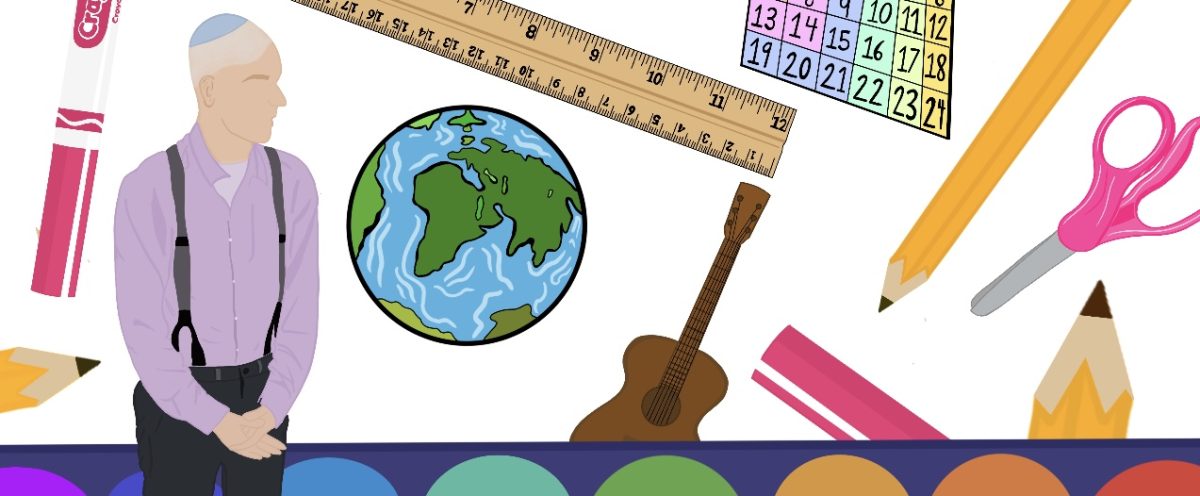The Modern Day Drug: Phones and Their Powerful Role in Our Lives
March 24, 2023
Do you remember your first phone? When you got it, and how excited were you? Do you remember the last time you were on your phone? What is your screen time? Americans are addicted to their phones, and it’s so common that not many people think much of it anymore. But how does phone addiction affect our lives? How different would Americans be if they spent less time on our phones?
According to ABC News, “Teens spend an average of seven hours and 22 minutes on their phones a day, and tweens — ages 8 to 12 — are not far behind, at four hours and 44 minutes daily.” Adults, on the other hand, are right in between those numbers at just over five hours a day.
How do these addictions start? I surveyed HBHA upper school and middle school students as well as staff members to learn more.

First, I asked them how often they carry their phones on them. 90.4% of respondents answered that they do so at “all times,” 5.8% answered “when I go out,” 1.9% said they carry one “at school/work,” 1.9% answered “Only when I need it.”
Of the survey respondents, 23.1% answered they spend 4 hours on their phones, while 9.6% answered More than 8 hours.

With phone addictions becoming more prominent, they’re increasingly challenging to avoid. Upon asking if respondents try to avoid being on their phones a lot, 36.5% of them answered “No, not really,” 15.4% answered “Yes.” It is difficult to stay off of such an addicting device. What is it that makes these devices so addicting?
Cell phone applications are one of the many ways phones have become addicting. According to my survey. Instagram is the app most used by respondents, followed closely by Snapchat, Facebook, and Tiktok. Many of these apps are part of the social media genre and designed to get you sucked in and addicted, and users end up spending as much time as possible feeding into their algorithms.

Addictions can begin quickly and at a young age. For example, when someone gets their first phone, they would likely be excited to use it, possibly not wanting to get off for a while, downloading new apps and texting friends, which could easily cause addiction.
There are many reasons why someone may get a phone, have it on them often, or be unable to stay off of it for long. We should not assume the worst of people who seem addicted to their phone, rather the best thing we can do is learn to be aware of our habits and set limits for ourselves. It is important to take a minute and think: “Could I be doing something more productive right now?” Instead of continuing to scroll through Tiktok for endless hours, maybe get up and do that job you’ve been procrastinating. With this mindset we can not only be better with our time but also feel better about ourselves.
Actually, staying off your phone can improve your mental health immensely. It’s okay if it’s difficult at first, because you won’t be perfect at it all the time. As long as you stay persistent and optimistic, who knows how beneficial it will be to disconnect from your screen.












































































